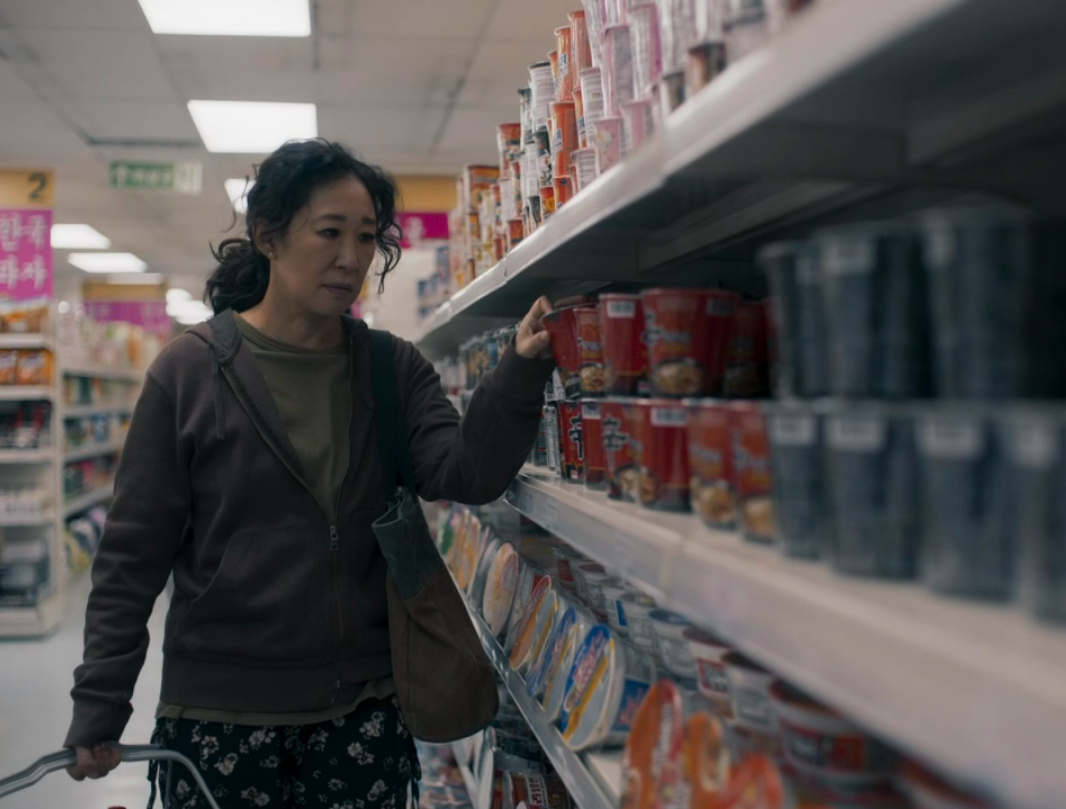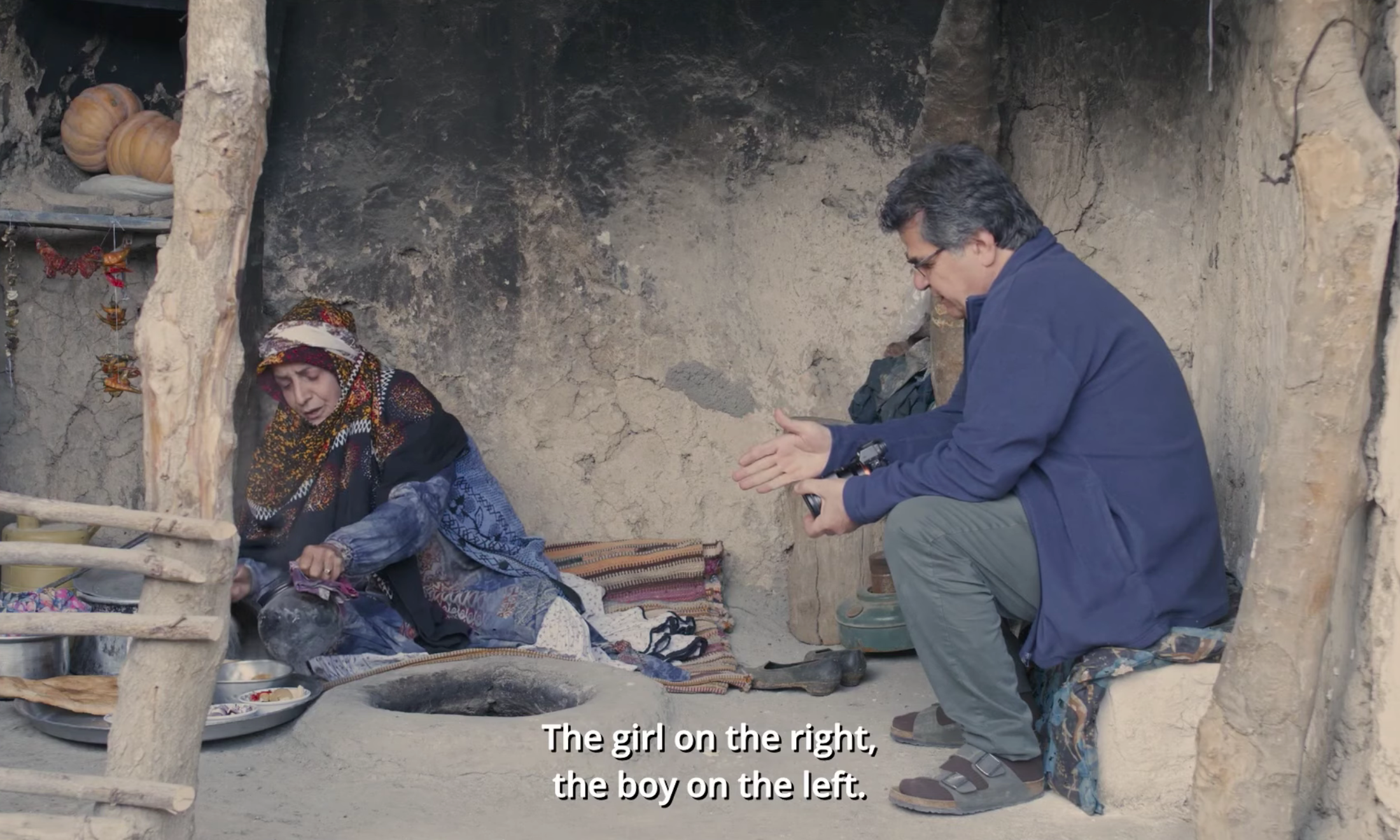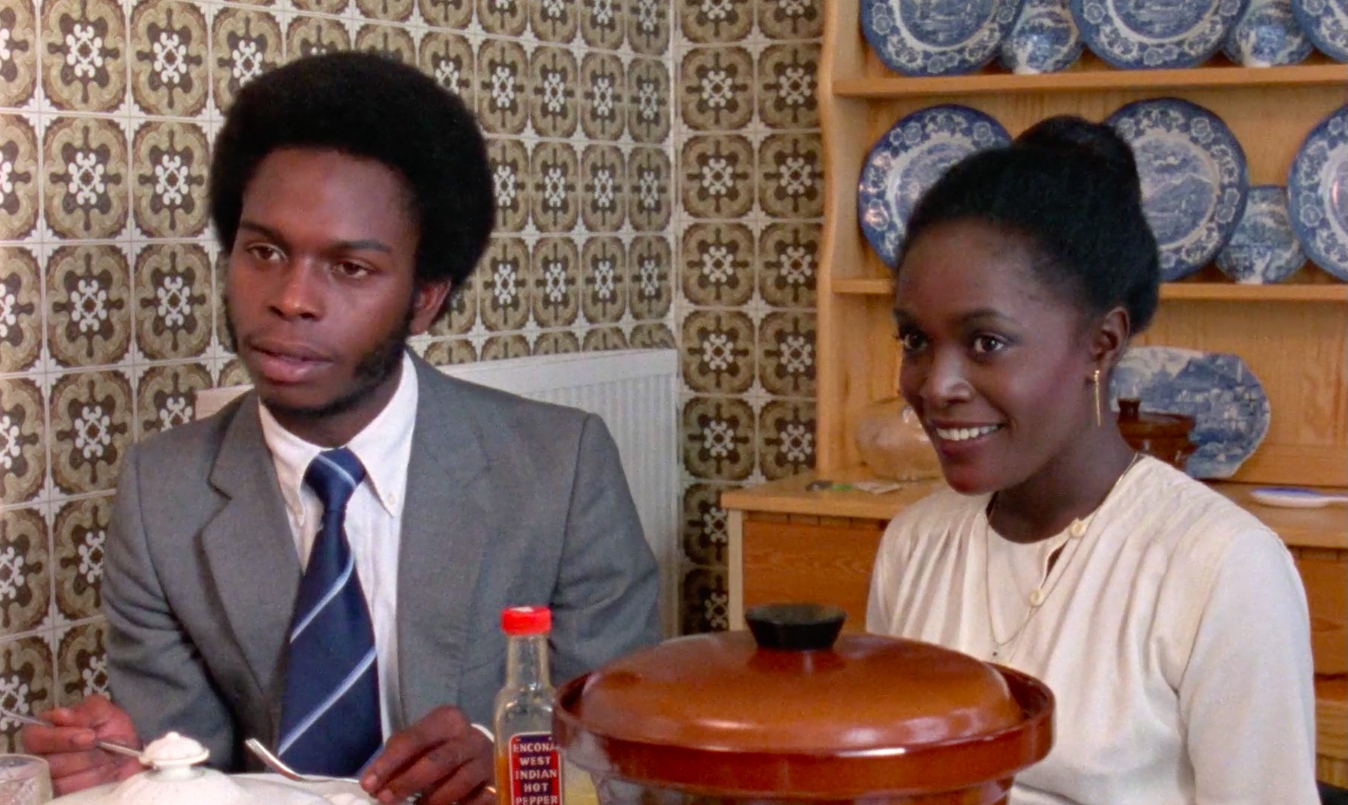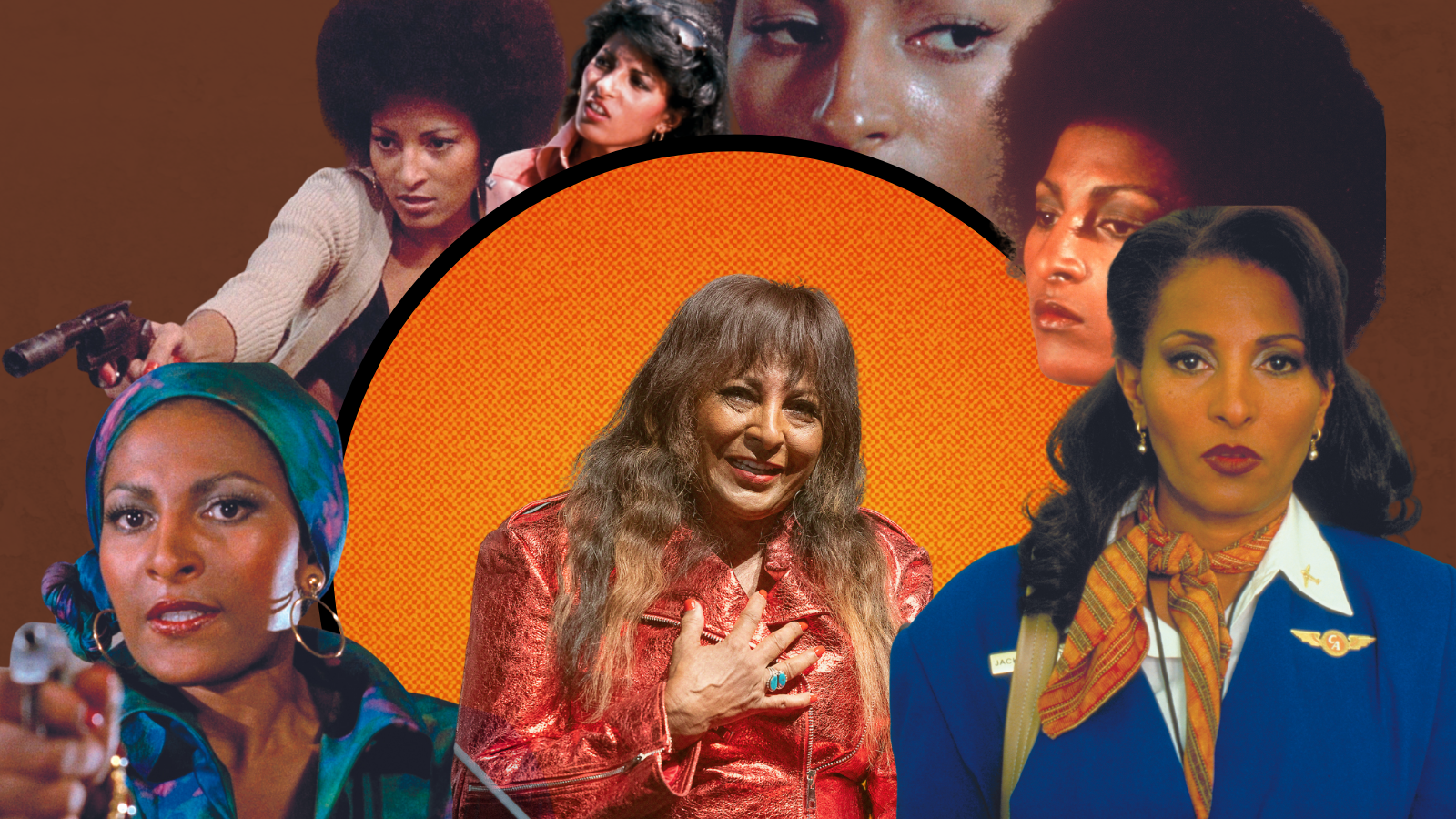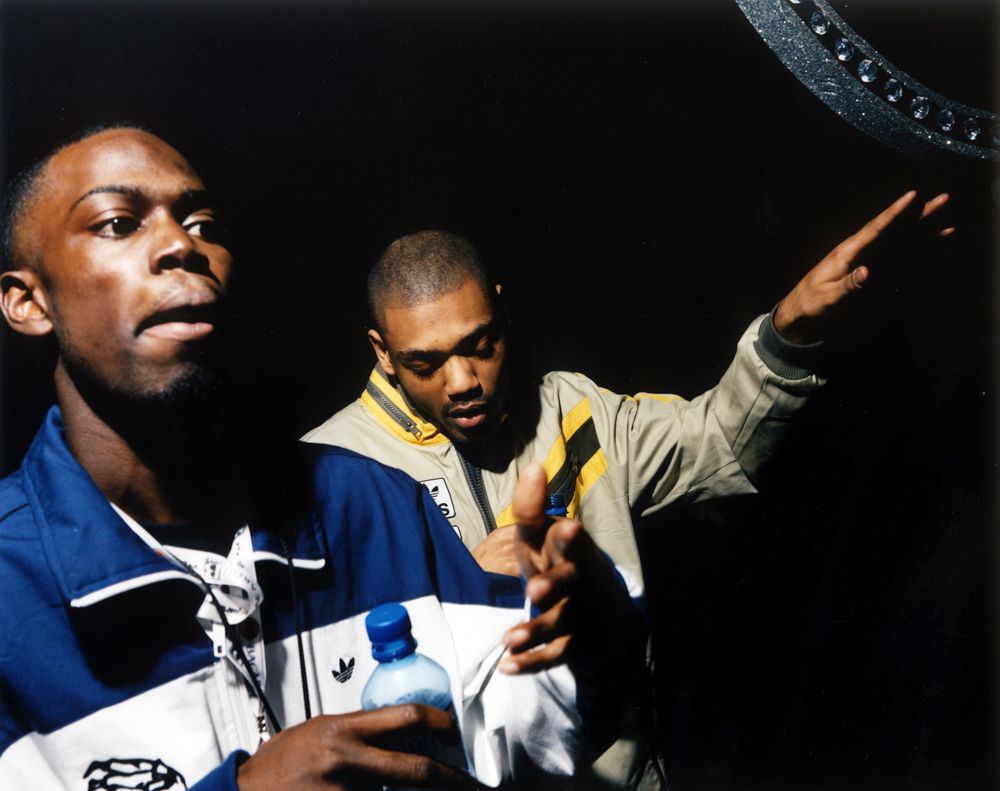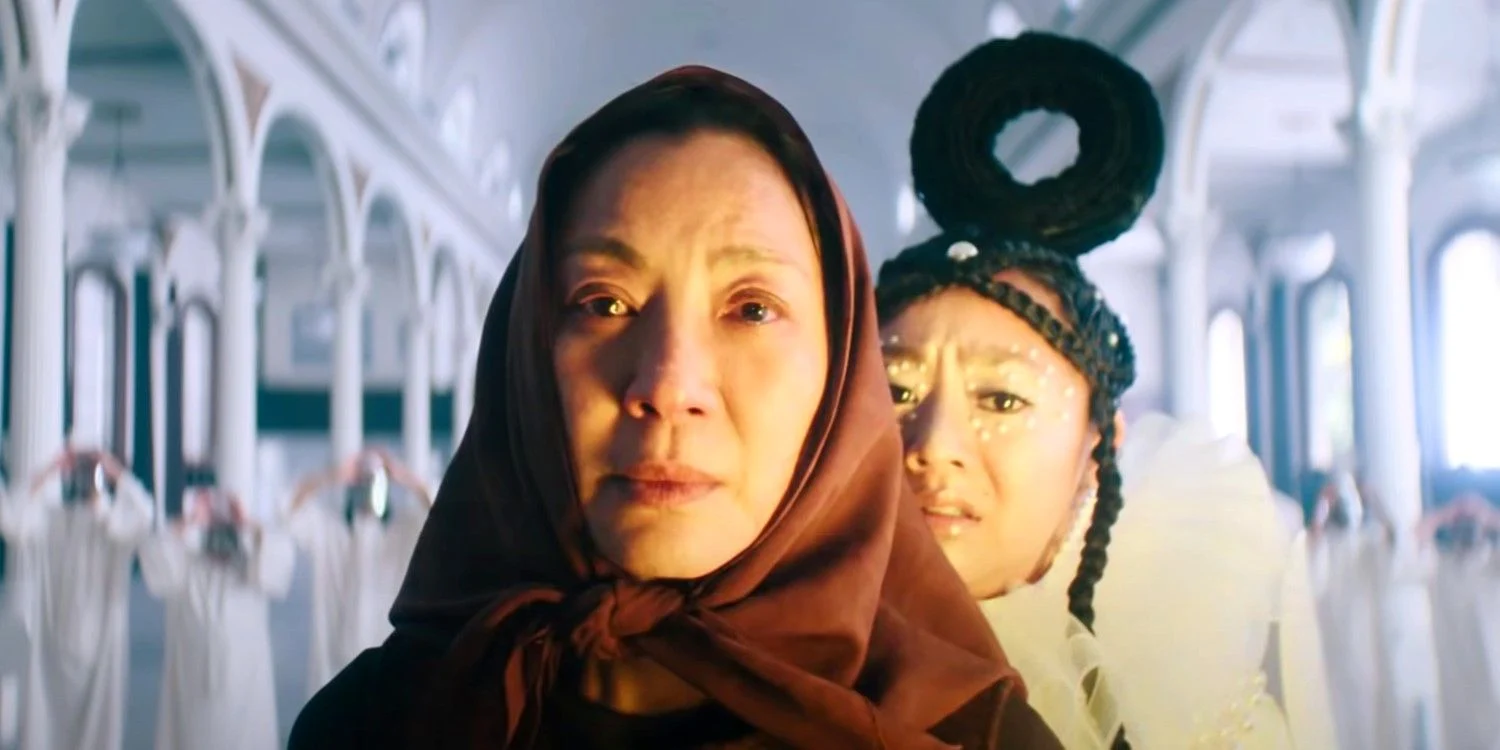Nanny uses West African mythology to demolish the American Dream
Nikyatu Jusu’s award-winning film takes inspiration from traditional folk tales in this modern-day horror
Matene Toure
20 Jan 2023

Prime Video
Storytelling is embedded in African tradition. However, my mother rarely spoke about her journey to the United States as a 24-year-old. One night though, she finally opened up about her experiences working as a nanny for a wealthy family in Long Island, New York. It was hell. Her employers solely hired her to exploit her undocumented status, trying to not pay her for work. She felt trapped in their mansion and forced to care for their children. This confession came back into focus during a recent viewing of Amazon’s chilling psychological fable, Nanny. For the first time, I could really see how the pursuit of the American dream bound my mother and many other women from the diaspora.
Nanny is Nikyatu Jusu’s indictment of the oppressive structures that use and abuse undocumented workers, especially young Black immigrants who seek to make a new life in the Global North. Nanny centers an undocumented immigrant and domestic worker from Senegal named Aisha, played by a captivating Anna Diop. She has ambitions to start anew in New York City with her young son, Lamine, portrayed by a delightful Jhaleel Lamine, who is still back home in Senegal waiting for his mother to bring him to the states. Aisha is hired by a wealthy white couple named Amy and Adam in New York City to nanny their young daughter Rose. Aisha is quickly confronted with guilt as she performs motherly duties for a child that is not her own, while she is forced to mother Lamine over the phone. But like most immigrants fleeing their home countries for a chance at a better life, she is willing to make such a sacrifice if it means that she and Lamine will be able to live happily ever after in America.
The domestic drama won the Grand Jury Prize at last year’s Sundance festival. It utilizes West African folktales to reveal how rage and fear manifest in monstrous ways. We’re seeing a rise in the reworking of these traditional stories in search of a canon that doesn’t lean on Western classics only. They formed the basis of Bolu Babalola’s authorial debut and Sunday Times bestseller Love in Colour, while Mami Wata, a film based on the mythology of the water deity, will become the first indigenously-produced Nigerian film to be shown at this year’s Sundance Film Festival. Elsewhere, there have been the creation of new magical and unsettling African tales like Netflix’s supernatural romance drama Atlantics, the fantastical prison drama Night of the Kings, and the terrifying South-Sudanese refugee horror His House.
“These figures, Mami Wata and Anansi the Spider, seek to subvert and disrupt systems”
Similarly, Nanny is a cautionary tale that uses real myths to expose the fallacy of abundance in the West. It’s an allegory for the ways in which such luxury is made at the expense of African women and women of colour who are exploited by the white and affluent. We see that exploitation manifest itself via external pressures – Aisha’s employers take advantage of her by not paying for her labor, making her work many overnight shifts, and even having her sleep in a black mold-infested room – but perhaps even more troubling is her internal undoing as Aisha begins experiencing psychological terrors.
The phrase ‘American Dream’ was coined during the Great Depression. It comes from a popular 1931 book by the historian James Truslow Adams, who defined it as “that dream of a land in which life should be better and richer and fuller for everyone.” The promise of the American dream has long been a beacon of hope for immigrants fleeing their homes, but for many who have made extraordinary sacrifices to emigrate to the United States for a better, richer, and fuller life, it quickly becomes clear that it’s a concept that is largely out of reach for people like Aisha. As a Black immigrant, she battles unpaid hours, exploitative overtime, and non-existent workplace boundaries between her and her employers. Her search for the elusive dream leads to literal nightmares.
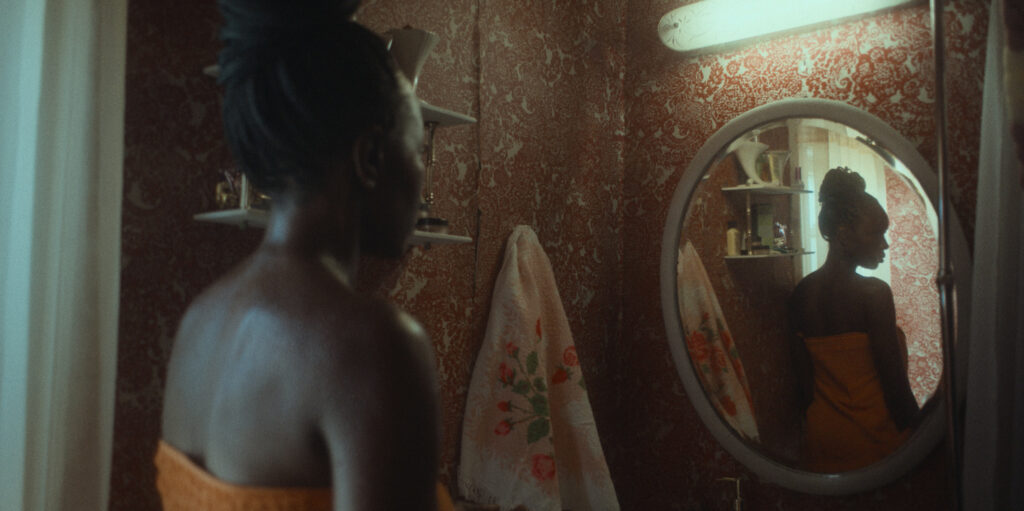
It is clear that director Jusu is influenced by Ousmane Sembene’s 1966 masterpiece Black Girl, about an African woman’s tragic death while working for a racist family in France. But Nanny goes beyond the realm of whiteness to tell the story of racial horror. Jusu utilizes African diasporic folklore to reframe what internal and external subjugation looks and feels like for Black people. One of the highlights of the film is the relationship between Aisha and Malick, the charismatic doorman of the building. Malick introduces Aisha to his grandmother Kathleen, a psychic of sorts – or Marabout – as they are known in Senegal. Kathleen tells Aisha that “these figures, Mami Wata and Anansi the Spider, seek to subvert and disrupt systems” that subjugate and abuse Black people across the diaspora.
“Mami Wata symbolises many aspects of life including good fortune, wealth, and healing but also the threat of destruction,” according to National Museum Scotland. The legend that she protects mothers and children was a poignant tale for slaves travelling across seas and the fierce symbol likely proved comforting. Meanwhile, Anansi is crafty and learns how to outsmart his opponent – another representation of overcoming adversity.
Nanny uses Black horror aesthetics and West African folklore to express visually how racial trauma and oppression harm Black people physically and psychologically. And by choosing figures from African mythology that also symbolize resistance and survival, the film forces us to revere our own dreams as a people, not the one force fed to us through Western conditioning.
The contribution of our members is crucial. Their support enables us to be proudly independent, challenge the whitewashed media landscape and most importantly, platform the work of marginalised communities. To continue this mission, we need to grow gal-dem to 6,000 members – and we can only do this with your support.
As a member you will enjoy exclusive access to our gal-dem Discord channel and Culture Club, live chats with our editors, skill shares, discounts, events, newsletters and more! Support our community and become a member today from as little as £4.99 a month.
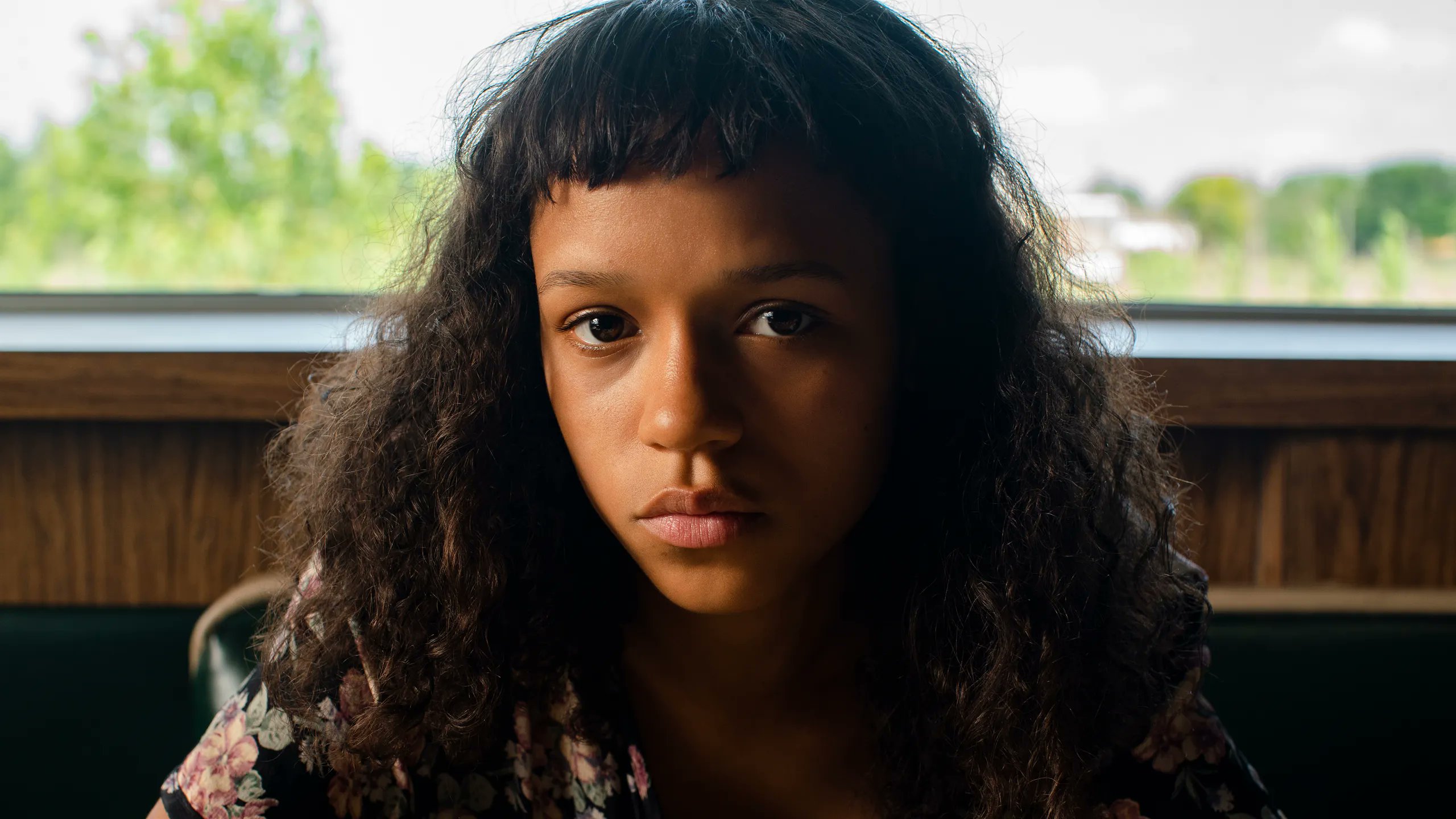
She ate: Maren’s Bones and All journey is a metaphor for radical self-acceptance

Twin Flames: Maybe Love is Blind’s Cole and Zanab were gaslighting each other

Sex Education’s Maeve and Isaac caravan canoodle is a romantic scene like no other
